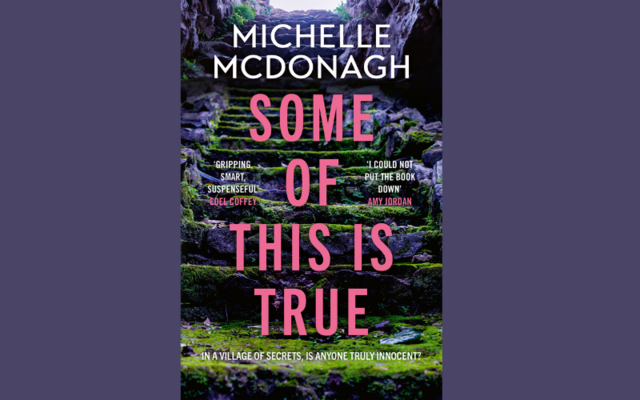Bestselling Irish author Michelle McDonagh looks at whether there can really be two versions of the truth and how this idea inspired her new novel, "Some of This is True".
There are two sides to every story, and the truth lies somewhere in the middle. Or does it? While it is a comforting idea, the middle ground fallacy – also known as the false compromise fallacy – assumes that the truth must always lie somewhere in between two extremes.
So if I say "all pigs can fly" and you say "no pigs can fly", the middle ground for us to compromise on is that "some pigs can fly". Clearly, this is not true. And what if one of the two sides to a story is coming from the viewpoint of a compulsive liar or a gaslighting abuser or somebody whose memory of an event is distorted due to the passing of time, perhaps, or the fact that they were drunk, or high, or delusional.
The late Robert Evans, legendary producer of films like "Rosemary’s Baby", "Love Story" and "The Godfather", may have been more accurate when he said, ‘‘There are three sides to every story: your side, my side and the truth. And no one is lying. Memories shared serve each differently."
We are drawn to take sides based on a multitude of variables: our upbringings, backgrounds, culture, values, beliefs, and increasingly, the online content we are smothering our brain cells with.
Here in Ireland, the Belfast rape trial, which split the nation, was an example of differing sides to one story, with some outraged on behalf of the victim and others on behalf of the defendants, depending on whose truth they believed. And more recently, there was the Conor McGregor trial, with many choosing to believe Nikita Hand and others choosing to believe his version of events. The truth clearly cannot lie somewhere in the middle of such situations.
The story of my new book, Some of This is True, is based around two very different versions of the truth. When the body of young American tourist Jessie De Marco is found at the bottom of the Wishing Steps in Blarney Castle, County Cork, it initially appears to be a tragic fall.
Jessie had travelled to the village in search of a father she had never met. However, when her bereft mother, Dani, arrives from Boston to identify her daughter’s body, she brings with her a story of Jessie’s father’s past – now a pillar of the community – that leads to shocking accusations and fervent denials.
Convinced that her daughter’s death was not accidental, Dani sets about uncovering evidence as the local community begins to take sides. But who to believe, the local sporting hero they have known all their lives, or a devastated mother with nothing to lose?
The flames of vitriolic hate against one character are vigorously stoked by the bellows of social media, turning direction as swiftly as a forest fire when the wind changes and a twist in the story – driven by an article that appears on Irish Central – leads people to question the veracity of what they have been told.
I can’t say too much about the Irish Central twist without spoiling the story, but suffice to say that it really sets the cat among the pigeons and changes everything for the characters.
While my novel is fiction, the setting is real, and the Rock Close in Blarney Castle, where the Wishing Steps are located (and where I live, not actually in the Castle, but in the village!) was the inspiration for my story.
And having spent some time working for The Irish Voice in Boston, one crazy summer about 25 years ago now, that beautiful city will always have a special part in my heart; it was lovely to go back there, albeit via my imagination, for my new book.
Michelle McDonagh is the author of two bestselling psychological suspense novels, "There’s Something I Have To Tell You" and "Somebody Knows", which was shortlisted for the An Post Irish Book Awards in 2024. Her third book, "Some Of This is True", is available at Bookstation Ireland and in audio and ebook here.




Comments